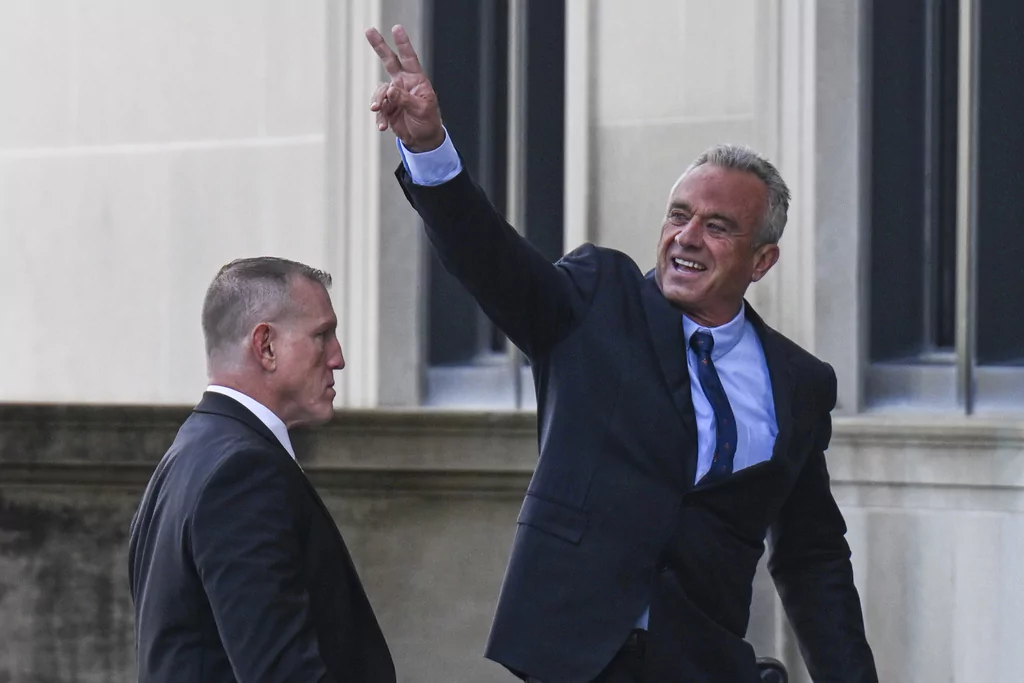

Robert F. Kennedy Jr. accused the Democratic National Committee of “lawfare” after being denied a place on the New York ballot this November.
In a Monday decision, Judge Christina Ryba ruled that Kennedy used a “sham” address to register to vote in the state and as a result will not appear on the ballot in the 2024 presidential election. The challenge was brought forward by the Democratic-aligned group Clear Choice Action.
“Using a friend’s address for political and voting purposes, while barely stepping foot on the premises, does not equate to residency under the Election Law,” Ryba wrote. “To hold otherwise would establish a dangerous precedent and open the door to the fraud and political mischief that the Election Law residency rules were designed to prevent.”
Kennedy denounced the decision as politically motivated.
“This case is an assault on New York voters who signed in record numbers to place me on their ballot,” he said in a post on X. “The DNC has become a party that uses lawfare in place of the democratic election process. We will appeal and we will win.”
“The Democrats are showing contempt for democracy,” he added in another statement. “They aren’t confident they can win at the ballot box, so they are trying to stop voters from having a choice. We will appeal and we will win.”
His campaign argued that Kennedy’s life was based in New York since 1964, with everything from his taxes to his falconry license being based in the state. The refusal of the judge to consider the 12th Amendment was seen as a main sticking point for campaign senior counsel Paul Rossi.
CLICK HERE TO READ MORE FROM THE WASHINGTON EXAMINER
“The 12th Amendment of the U.S. Constitution governs the residency of presidential and vice presidential candidates, not state law,” Rossi said. “We intend to pursue injunctive relief in the Southern District of New York. If state court judges are going to ignore the Constitution, the federal courts must step in to protect voters’ rights.”
Kennedy’s campaign announced last week that it had obtained enough signatures to appear on the ballot in all 50 states and the District of Columbia.






